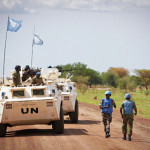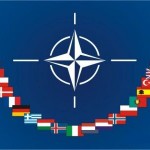(C) Kapok Tree Diplomacy. August 2010. All rights reserved. By Jeff Dwiggins
Introduction – FREE CONTENT
The need for a “fundamental institutional arrangement not only to address questions of war and peace and human rights but to develop legal norms in other areas, such as labor, health, and communications,” has enticed the vast majority of states to consent at some level to a growing and complex body of rules and norms designed to serve state interests by securing and furthering a peaceful, prosperous and stable society (Dunoff et. al. 16). Today these norms permeate the mission and operations of numerous international institutions like the United Nations, providing peaceful dispute resolution tools in such diverse areas as trade, military operations and human rights.
While most states desire to live in peace with one another and follow the fundamental norms of international law, a few states and some increasingly dangerous non-state actors like Al- Qaeda prefer to do whatever they want. In his Nobel Peace Prize acceptance speech, U.S. President Barack Obama added, “[the] old architecture is buckling under the weight of new threats … wars between nations have increasingly given way to wars within nations. The resurgence of ethnic or sectarian conflicts; the growth of secessionist movements, insurgencies, and failed states; have increasingly trapped civilians in unending chaos” (Obama 51).
This paper will examine what it means to “keep the peace” in an era of the globalization of world politics and unprecedented challenges and threats. The specific challenges to be addressed include nuclear proliferation, military conflict and terrorism, international trade and economic relations, diminishing natural resources, and humanitarian and human dignity issues. The paper will also examine whether existing international institutions and legal doctrines are likely to resolve the issue, and where are they likely to fall short?
The posts, views and opinions expressed in this post are completely my own and do not represent the views or opinions of the Department of Defense (DoD), the Department of the Navy (DON) or any of the Armed Forces.
Section One – Nuclear Proliferation
Nuclear weapons are able to do far more than disable enemy combatants. They can destroy entire cities and obliterate entire human populations with one powerful blast. The international community has developed two important treaties, The Treaty on the Non-Proliferation of Nuclear Weapons (NPT) and the Comprehensive Test Ban Treaty (CTBT), to limit proliferation of Weapons of Mass Destruction (WMD), encourage disarmament, and preserve peaceful usage of nuclear energy (Dunoff et. al. 532-533). Although these treaties have substantial ratifications, their effectiveness is severely limited by holdouts and compliance issues. Read more
Like this:
Like Loading...





